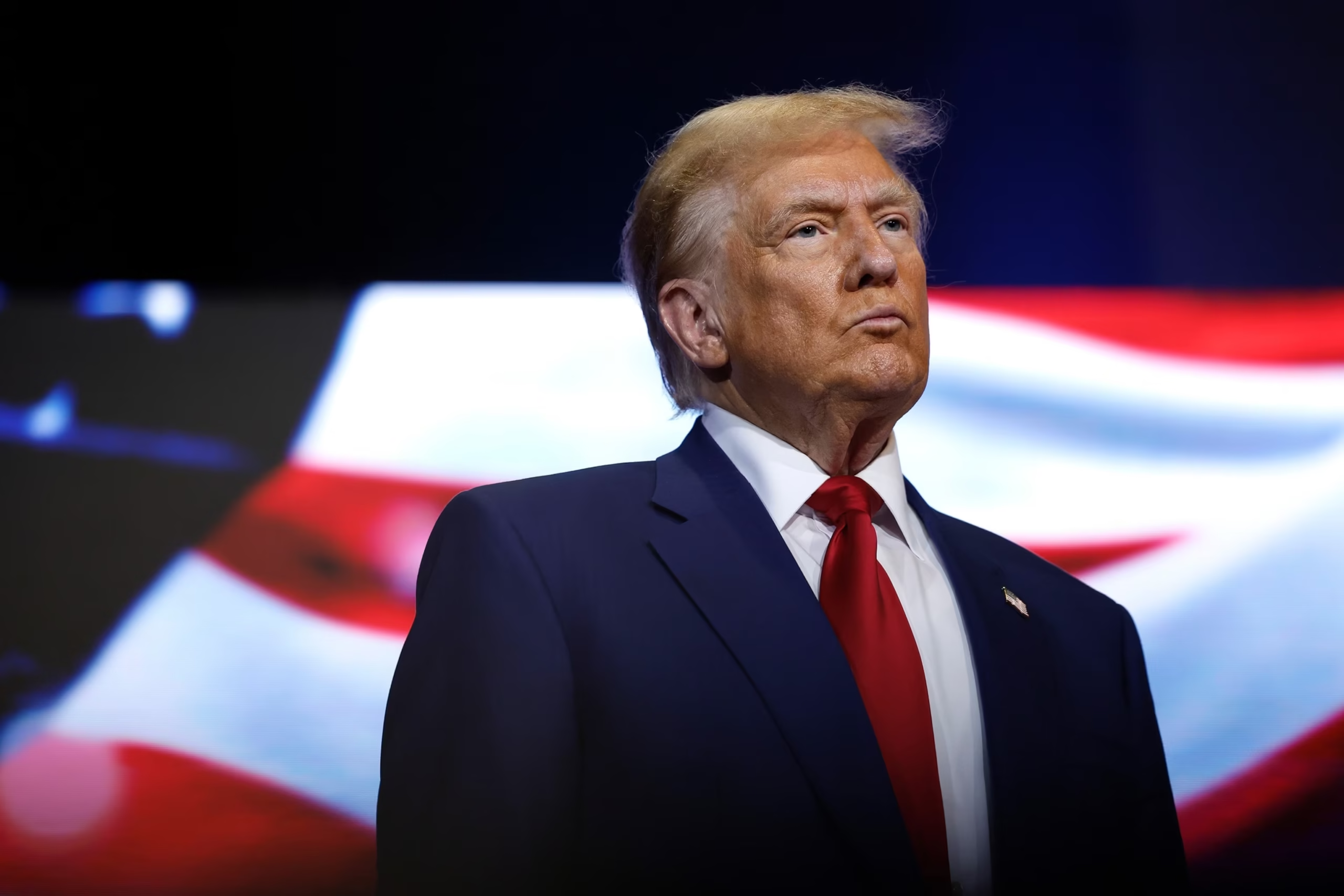Stock markets across Europe fell in early trading, mirroring steep losses in Asian markets overnight, as investors reacted to looming trade tariffs set to be announced by U.S. President Donald Trump this week.
Japan’s Nikkei index closed down more than 4%, while London’s FTSE 100 dropped around 1% in early trading, reflecting growing uncertainty over global trade.
Trump has suggested that the new tariffs, expected to be unveiled on Wednesday, will apply to all countries rather than just those with significant trade imbalances with the U.S.
He has described the move as America’s “Liberation Day,” signaling a major escalation in his protectionist trade policy.
Global Market Reactions
The announcement has rattled global markets, with investors bracing for further volatility. In Asia, major indices saw sharp declines, with Hong Kong’s Hang Seng and South Korea’s KOSPI also experiencing significant losses.
European markets followed suit, as fears of a trade war weighed on investor sentiment.
The uncertainty surrounding Trump’s trade policies has led to heightened volatility in financial markets. Analysts warn that if the tariffs are extensive, they could disrupt global supply chains, slow economic growth, and provoke retaliatory measures from key U.S. trading partners.
Impact on Specific Sectors
Several sectors are expected to be particularly vulnerable to the new tariffs. The automotive industry, which has already been hit by tariffs on steel and aluminum, faces further strain if additional import duties are imposed. Companies reliant on imported components, such as electronics manufacturers, could also see rising costs and supply chain disruptions.
Additionally, the agricultural sector is closely monitoring developments, as past tariffs have led to reduced exports and falling commodity prices. China, the European Union, and Canada have previously responded to U.S. tariffs with their countermeasures, targeting American agricultural products such as soybeans, pork, and dairy.
Broader Economic Implications
The upcoming tariffs are part of a broader strategy by the Trump administration to reduce the U.S. trade deficit and encourage domestic manufacturing. However, economists argue that such measures could backfire by increasing costs for American businesses and consumers. Higher tariffs on imports may lead to rising prices for goods ranging from household appliances to automobiles.
Furthermore, retaliatory tariffs from other nations could hurt U.S. exporters, particularly in industries that rely on international markets.
The uncertainty surrounding trade policy has already led some businesses to delay investment decisions, further dampening economic growth.
Political Reactions and Diplomatic Tensions
Trump’s latest tariff announcement has drawn mixed reactions both domestically and internationally.
While some U.S. lawmakers and industry groups support the administration’s efforts to address trade imbalances, others warn that escalating trade tensions could harm the economy.
In Europe, leaders have expressed concerns over the impact of U.S. tariffs on global trade stability. The European Union has indicated that it may take countermeasures if the new tariffs disproportionately affect its member states.
Similarly, China, which has been a primary target of Trump’s trade policies, has vowed to respond to any further tariff increases.
Market Analysts Weigh In
Financial analysts are closely watching how the situation unfolds. According to Dharshini David, a BBC economic analyst, “Given the twists and backpedaling we’ve seen so far, it is hugely unclear what the president will unveil and what the impact will be.”
The unpredictability of Trump’s trade policies has led to market fluctuations, with investors adopting a cautious approach. Analysts warn that continued uncertainty could lead to prolonged market instability, potentially affecting investment and economic growth.
With Trump set to make his announcement on Wednesday, investors, businesses, and global leaders will be watching closely. If the tariffs are broad and aggressive, they could trigger a new wave of economic retaliation from key U.S. trading partners.
For now, markets remain on edge, awaiting further details on the scope and scale of the proposed tariffs.
The coming days will be crucial in determining the long-term impact of Trump’s trade policies on both the U.S. economy and global markets.

